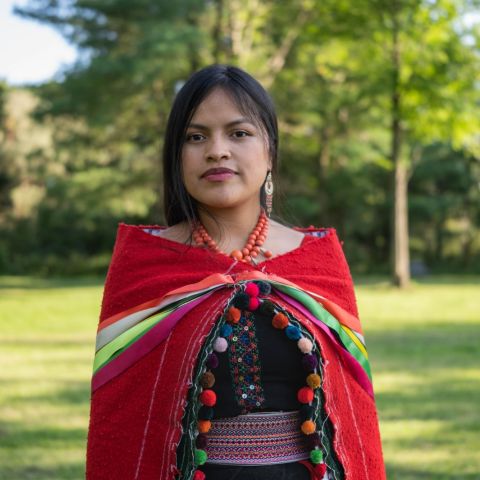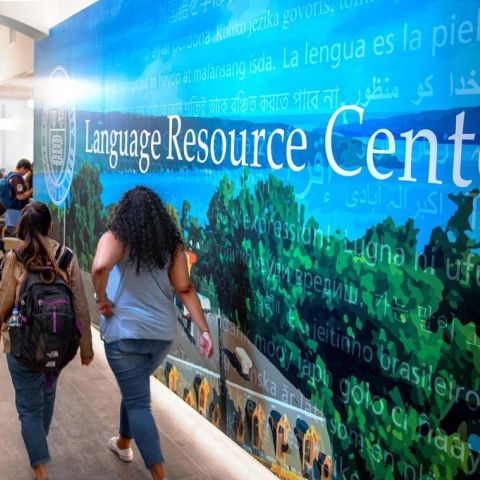Comparative Muslim Societies Program
Halal and/or Qingzhen: A Historical Process and Recent Policies of Sinicization of Islam in China”

October 4, 2022
12:00 pm
Talk by James D. Frankel
Islam arrived in China during the 7th century as a foreign religion. Yet, once the first Muslims settled permanently there, Islamic religious and cultural traditions were gradually influenced by the norms of Chinese culture and society. This process of naturalization and localization sometimes referred to as “Sinicization”, continued apace for nearly a millennium before historical circumstances accelerated it during the Ming (1368-1644) and Qing (1644-1911) dynasties. The vicissitudes of modern Chinese history have led to varying official governmental and societal attitudes towards Islam and Muslims and concomitant adaptations of identity and expressions of religiosity by Chinese Muslims. Most recently, the government of the People’s Republic of China is pursuing its own policies of decreasing foreign religious influences in the country in the name of combatting “extremism and separatism.” These have included official regulations aimed at “sinicizing” Islam in China, leading Muslims into a new wave of adaptation for their survival.
Additional Information
Program
Einaudi Center for International Studies
Comparative Muslim Societies Program
East Asia Program
Constituting Afghanistan: Rediscovering Afghan Legal History between the Ottoman and British Empires

September 20, 2022
4:30 pm
Morrill Hall, Room 404
Talk by Faiz Ahmed
Just as a devastating humanitarian crisis, international isolation, and fraught governing regime mark the country’s present-day realities, recent years have witnessed a series of more optimistic anniversaries in Afghanistan’s modern history. As leading examples, 2019 marked the 100th anniversary of Afghanistan’s independence from the British Empire, and 2023 will mark the centennial of Afghanistan’s first written constitution. Commemorating the roots and legacies of Afghanistan’s independence and first national charter a century ago, Faiz Ahmed unearths a lost history behind the country’s emergence as a fiercely anti-colonial, constitutionally governed, and widely respected “Islamic nation-state” lodged between the late Ottoman Empire, Iran, and British India, the subject of his first book Afghanistan Rising. As the US and other global actors continue to debate the future of relations with and foreign involvement in this pivotal country, this lecture will explore what lessons we can learn from rediscovering Afghanistan’s own legal and constitutional history from Afghan and other perspectives of the region(s) it inhabits.
Additional Information
Program
Einaudi Center for International Studies
Comparative Muslim Societies Program
South Asia Program
Made in China: Artworks for Chinese Muslims

September 6, 2022
4:30 pm
Morrill Hall, Room 404
Talk by Qamar Adamjee
This talk, a research project in its early stages, takes three 18th century Qing-period enameled vessels in the Denver Art Museum collection as a starting point for exploring their function, meaning, and context of use within a Chinese Muslim community. The copper vase, covered box, and incense burner are richly enameled cloisonne ware, a type of luxury goods that became very fashionable in the Qing period (1644-1911). Decorated with floral motifs and bearing pious Arabic inscriptions written in the distinctive Chinese sini script, these three vessels were possibly made as a set, similar to Chinese religious ritual altar sets, but for use in a Muslim context. The socio-political and religious histories of Muslim communities in China have been subjects of scholarship in recent decades, but much more work on the artistic production of (and for) Chinese Muslims remains to be done. Drawing upon the visual information included on these objects and by studying them alongside Qur'an manuscripts, mosques, and shrines, this paper situates the material culture of Sinophone Muslims within the context of Muslim ritual practice as well as within wider frameworks of imperial Chinese art, politics, and popular religion.
Additional Information
Program
Einaudi Center for International Studies
Comparative Muslim Societies Program
Berin F. Gür, "Political Misuse, Conquest and Hagia Sophia in Istanbul”
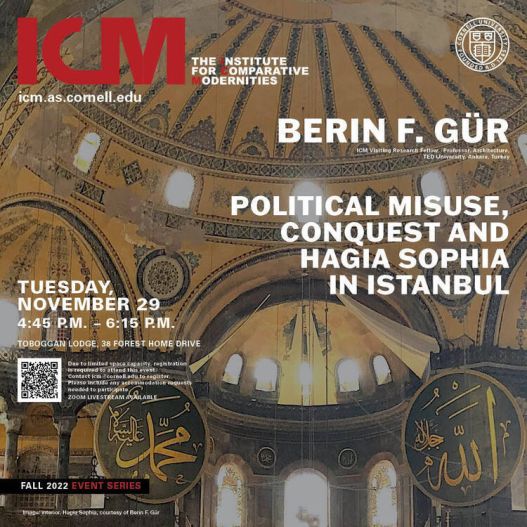
November 29, 2022
4:45 pm
Toboggan Lodge
For the Islamist-nationalist circles in Turkey, the conquest of Istanbul on May 29, 1453 is a significant triumph inherited from the magnificent times of the Ottoman Empire, and believed to denote the founding moment of the Turkish nation. In this research, the Islamist-nationalist rhetoric of the Ottoman conquest of Istanbul is seen as a manipulated melancholy project of the Islamist-nationalist imagination, which fixes the conquest in (spatial) images of its own “mourning” and produces “lost objects” to use as a tool of political propaganda (although nothing has actually been lost). Architecture as the bearer of clues to the search for lost objects and spatial-political instruments of the conquest rhetoric thus becomes the subject of the research. Hagia Sophia, whose status as a prayer space (mosque) and secular space (museum) has always been the main issue of controversies, is instrumental in thinking of “the lost mosque”. Thus, in this research, the building is brought forward as “the lost object” of the politically manipulated melancholy project of the Islamist-nationalist imagination, and its political misuse as “the lost mosque” becomes the main focus.
Berin F. Gür is professor of Architecture at TED University (TEDU), Ankara, Turkey and a visiting research fellow at the Institute for Comparative Modernities. She has taught architectural design since 1992 and teaches classes on the spatial and formal analysis of buildings and its theory, reading architectural precedents, and topics in contemporary architecture. She has various publications in the international and national journals and books on the processes of architectural design and urban design; architectural design education; architectural criticism; ideologies and architecture, and the production of urban space. She was the head of TEDU Department of Architecture between 2013-2019; and worked as the Vice Dean between 2019-2021.
Her time at Cornell and the ICM will be spent working on her current book project, Conquest and Melancholy: The Islamist-nationalist Rhetoric of the Conquest of Istanbul and the Manipulation of Architecture. The book brings together two seemingly irrelevant terms: “conquest” associated with glory and victory, and “melancholy” associated with mourning and grief. Togetherness of conquest and melancholy in this book advocates re-conceptualization of melancholy as a manipulated project. And the following questions are formulated: How is the Istanbul’s conquest represented in the Islamist-nationalist imagination? What are the melancholy objects or, in other words, “the lost objects” of the Islamist-nationalist rhetoric of conquest? What are the spatial political instruments of the conquest rhetoric?
Livestream available with this link. No registration required for online viewing:
passcode: 1129
Additional Information
Program
Comparative Muslim Societies Program
Institute for European Studies
Gender, Authority, and Epistemology in Islamic Medical Ethics
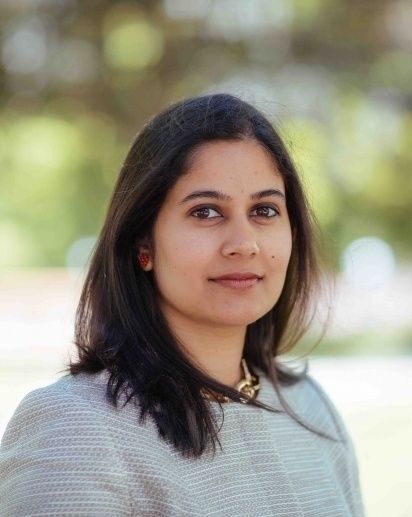
September 30, 2022
4:30 pm
Goldwin Smith Hall, G76, Lewis Auditorium
There is a serious lacuna in Islamic medical ethics in considering the category of gender, especially in the consciousness that gender, maleness, femaleness, or non-binary status, affects how patients receive medical counsel and medical care, and interact with religious authorities. This lack of attention to gender is also true for specifically so-called “women’s health” topics such as assisted reproductive technologies or abortion. In this talk Dr. Zahra Ayubi will analyze the limitations of fiqh (Islamic jurisprudence) based medical ethics in addressing gender concerns in such topics. She will do a close reading of jurisprudential opinions (fatwas) and the queries that originate them and also present research from interviews that demonstrate a mismatch between the issues important to the questioners and jurists (muftis). Ultimately, as a scholar of religion taking a feminist standpoint, she will argue that a gender contentious epistemology in Islamic medical ethics is impossible to achieve without centering women’s experiences and interpretive authority.
Masks are required to attend.
Zahra Ayubi is a scholar of women and gender in premodern and modern Islamic ethics. She specializes in feminist philosophy of Islam and has published on gendered concepts of ethics, justice, and religious authority, and on Muslim feminist thought and American Muslim women's experiences. Her first book, Gendered Morality: Classical Islamic Ethics of the Self, Family, and Society (Columbia, 2019) rethinks the tradition of Islamic philosophical ethics from a feminist critical perspective. Developing a lens for a feminist philosophy of Islam, Ayubi analyzes constructions of masculinity, femininity, and gender relations in classic works of philosophical ethics by Abu Hamid Muhammad al-Ghazali, Nasir-ad Din Tusi, and Jalal ad-Din Davani. She interrogates how these thinkers conceive of the ethical human being as an elite male within a hierarchical cosmology built on the exclusion of women and nonelites. She calls for a philosophical turn in the study of gender in Islam based on resources for gender equality that are unlocked by feminist engagement with the Islamic ethical tradition.
Sponsored by the Religious Studies Program as part of the New Directions in Religious Studies Lecture Series. With support from Cornell's Feminist, Gender & Sexuality Studies Program, Comparative Muslim Societies Program, and Department of Science & Technology Studies.
Additional Information
Program
Comparative Muslim Societies Program
Pelosi’s Taiwan Trip Spurs New Military Activity in Pacific

Allen Carlson, CMSP/EAP/SAP/SEAP
“In the end, one would hope that the Speaker has made her point and will be restrained in speaking directly about independence while in Taiwan… while China will not go beyond previous shows of force,” says Allen Carlson, associate professor of government.
Additional Information
Afghanistan One Year Later: Reflections on Life Under the Taliban

August 25, 2022
5:30 pm
Uris hall, Terrace
One year ago, on August 15, 2021, the Taliban entered the Arg (Presidential palace) in Kabul, completing their astonishingly rapid takeover of Afghanistan. At the end of that same month, US forces completed withdrawal from Afghanistan – marking an end to the longest war in American history. One year later, our speakers reflect on Afghanistan’s recent history, life under the Taliban regime, and what we might expect in the near future as the Taliban engages with the international community. We welcome attendees to join us for a fireside conversation about this critical geopolitical topic.
Speakers
Zinab Zhra Attai, Reppy Institute Director’s Fellow, Ph.D. student in Comparative Politics, Cornell University
Sharif Hozoori, Visiting Scholar, South Asia Program & IIE-SRF Fellow
Maryam Amini, Global Development, Cornell CALS
Moderator
Sabrina Karim, Hardis Family Assistant Professor for Teaching Excellence, Associate Director, Reppy Institute for Peace and Conflict Studies
***
Presented by the Reppy Institute for Peace and Conflict Studies. Co-sponsored by the South Asia Program and the Gender and Security Sector Lab.
Additional Information
Program
Einaudi Center for International Studies
Reppy Institute for Peace and Conflict Studies
Comparative Muslim Societies Program
South Asia Program
Rare and Distinctive Language Fellowships

Details
If you love languages, our newest summer funding opportunity is for you!
Rare and distinctive (RAD) languages set Cornell apart. Cornell offers over 50 languages, including some of the world's least frequently taught—from Ukrainian to Quechua, Urdu to Burmese.
With the help of a RAD Language Fellowship, you can achieve fluency in your choice of these languages. Learning RAD languages offers insight into vibrant cultural identities and traditions and gives you the ability to work effectively in places around the globe.
Cornell Chronicle: Einaudi Fellowships Support Students Learning Uncommon Languages
Amount
For summer study at any level (graduate or undergraduate): $3,500 stipend, plus a fees and tuition allowance of up to $5,000.
Eligibility
All currently enrolled Cornell graduate and undergraduate students are eligible for RAD fellowships. You do not need to be a citizen or permanent resident of the United States or complete a FAFSA, which FLAS requires.
You must be planning to study a modern language among the least commonly taught languages offered at Cornell (see sidebar).
To be a successful applicant, you need to show potential for high academic achievement and agree to pursue full-time study of a language in accordance with the university’s requirements. You do not need to have previous experience or coursework in the language you plan to study. Lowest priority will be given a candidate who is a native speaker of the language.
How to Apply
In your application, you will be asked to provide information on your proposed study location. You must identify your own preferred program.
We recommend the following U.S. summer intensive language programs, although we will consider any programs—domestic or overseas—that meet the minimum requirements.
- African Summer Language Institute (ASLI)
- Indiana University Summer Language Workshop
- South Asia Summer Language Institute (SASLI)
- Southeast Asian Studies Summer Institute (SEASSI)
- YIVO-Bard Summer Program
Your program must be at least six weeks in duration and offer at least 120 student contact hours. Please indicate the language level you intend to study during the award period.
Requirements
- Be a currently enrolled Cornell student.
- Plan to attend an approved summer intensive language acquisition program.
- Use the online application to submit your materials, including:
- Two letters of recommendation from faculty members.
- An official transcript of one full academic year of coursework.
- An optional third letter of recommendation from a language instructor.
Foreign Language and Area Studies Fellowships
RAD fellowships expand the scope of language study supported by Einaudi's Foreign Language and Area Studies Fellowships. If you are a U.S. citizen or permanent resident studying a language of South or Southeast Asia, please apply for a FLAS fellowship for a summer or full year of study. Apply for the RAD Language Fellowship if you are:
- studying a language from outside of South or Southeast Asia, or
- studying a language of South or Southeast Asia, but you are not a U.S. citizen or permanent resident.
Both opportunities have the same deadline.
RAD Language News and Opportunities
Additional Information
Funding Type
- Fellowship
Role
- Student
Program
Khalid Mustafa Medani, "The Great Transformation in the Middle East and Africa: Globalization, (In)formal Markets and the Politics of Identity"
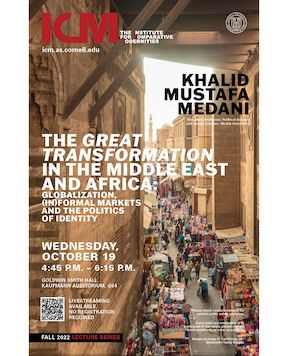
October 19, 2022
4:45 pm
Goldwin Smith Hall, Kaufmann Auditorium G64
ICM FALL 2022 LECTURE SERIES
Khalid Mustafa Medani is associate professor of political science and Islamic Studies and Chair of the African Studies Program at McGill University. He received a B.A. from Brown University, an M.A. from Georgetown University, and an M.A. and Ph.D. in Political Science from the University of California, Berkeley. His most recent book, Black Markets and Militants: Informal Networks in the Middle East and Africa (Cambridge UP, 2021) examines the relationship among economic globalization, informal financial, housing and labour markets, and the emergence and evolution of Islamist and ethnic politics in Sudan, Egypt and Somalia.
Additional Information
Program
Comparative Muslim Societies Program
International Fair 2022

August 31, 2022
11:00 am
Uris Hall, Terrace
The annual International Fair showcases Cornell's global opportunities for undergraduate and graduate students. Explore the fair and find out about international majors and minors, language study, study abroad, funding opportunities, global internships, and more.
The International Fair is sponsored by the Mario Einaudi Center for International Studies, the Office of Global Learning (both part of Global Cornell), and Cornell's Language Resource Center.
Additional Information
Program
Einaudi Center for International Studies
Reppy Institute for Peace and Conflict Studies
Comparative Muslim Societies Program
East Asia Program
Southeast Asia Program
Latin American and Caribbean Studies
Institute for African Development
Institute for European Studies
South Asia Program

